Civil Liberties, Crony Capitalism, Human Rights, Truth to Power
Podcast: Play in new window | Download

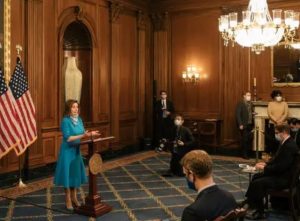
USPS Crisis During Pandemic
During the COVID-19 pandemic, U.S. postal workers have been considered essential workers who continue to perform their jobs. Yet the Postal Service is in imminent danger of shutting down entirely due to lack of funding. A permanent shutdown of this quasi-government agency would leave hundreds of thousands out of work, and threaten privatization of a beloved and venerable institution.
The nation relies on the delivery of critical goods and services that mail service allows, including life-saving medications. More than one billion prescription drugs were shipped last year alone. And in rural areas, millions of Americans rely on the Postal Service to deliver essential goods.
When President Donald Trump signed into law a $2 trillion coronavirus emergency spending bill, it allowed USPS to borrow a mere $10 billion from the Treasury Department. Fredric V. Rolando, president of the National Association of Letter Carriers, called this “woefully inadequate,” and said, the administration clearly does not understand the importance of the Postal Service, especially now. Trump has said that the administration won’t approve the $10 billion loan if the postal service doesn’t quote, “take his advice” to raise package and shipping rates “approximately four times.”
Postmaster General Megan Brennan recently warned members of the House Oversight Reform Committee that “the sudden drop in mail volumes, our most profitable revenue stream, is steep and may never fully recover.
Help save the USPS – USMailIsNotForSale.org / NationalRuralOrganizing
The Postal Service is the most popular federal agency among the public. In a recent Pew Research poll, more than 91% of respondents said they have a favorable opinion of USPS. That rating is higher than the CDC or the Census Bureau.
Guest – Chuck Zlatkin. Chuck is the legislative director of the New York Metro Area Postal Union.
—-
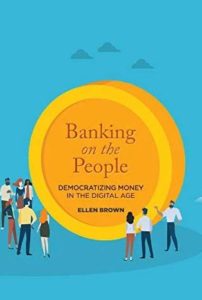
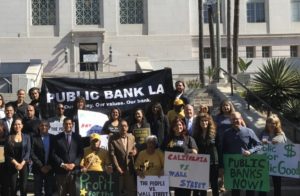
Banking On The People: Ellen Brown
So far President Donald Trump and Congress have authorized $6 trillion to be given out in effort to stem an ongoing economic depression. One trillion is 1000 billion dollars and $1 billion is 1000 million dollars. There are so many zeros in $6 trillion that the number when written down stretches from one side of the page to the other. Six trillion if divided up and given to each American worker would mean that each one of them would have gotten tens of thousands of dollars. But instead most of the money went to the hedge funds, banks, and big corporations.
The average American got very little. Small businesses got very little and are now pressured to open up. State and municipal governments received very little. Millions of people got nothing at all.
Under the bailout legislation, money could go to finance public banks. These funds could be used to finance a better society, particularly a green new deal. Public banks could be like a utility operating on the principal of doing public good.
Guest – Attorney and economist Ellen Brown who has written 13 books on economics and is the founder of The Public Banking Institute. We will be speaking about the COVID-19 bailouts and how they will betray Americans just as the 2008 stimulus aid did. Ellen Brown is the cohost of a radio program on The progressive radio network, prn.fm, called It’s Our Money.
—————————–

—————————–
CIA Sponsored Terror, Civil Liberties, Crony Capitalism, Human Rights, Surveillance, Torture, Truth to Power
Podcast: Play in new window | Download
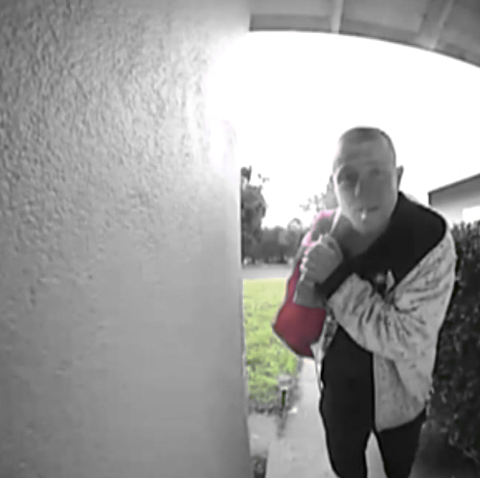

Amazon Ring Of Surveillance
When it comes to e-commerce, the multinational tech company Amazon.com has laid claim to a huge corner on the market. Now, it’s venturing into the business of surveillance.
Amazon is aggressively pursuing law enforcement partnerships. More than 400 police departments across the nation have already joined forces with the tech giant’s so-called smart doorbell program, called Ring. Part of Amazon’s outreach strategy in gaining new police partners is to play on fears of increasing property crime.
Ring doesn’t just show you who is at your door. It films and records any interaction or movement at owners’ doors, then alerts users’ phones. With partnerships between mega corporations and law enforcement to use new surveillance systems in the public–leaving out community input–come a host of civil liberties concerns, including racial profiling.
Guest – Matthew Guariglia of the Electronic Frontier Foundation. Matthew is a policy analyst working on issues of surveillance and privacy at the local, state, and federal level. He is a frequent contributor to the Freedom of Information-centered outlet Muckrock and his bylines have appeared in the Washington Post and Motherboard.
—-
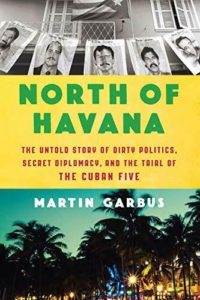
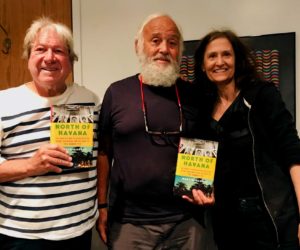
North of Havana: The Untold Story of Dirty Politics, Secret Diplomacy, and the Trial of the Cuban Five
North of Havana: The Untold Story of Dirty Politics, Secret Diplomacy, and the Trial of the Cuban Five is the recent publication by our guest attorney Martin Garbus.
This case was one of the most significant ones in recent times. Attorney Len Weinglass had originally taken the case to appeal the matter for already convicted Cuban Five. The appeal was ultimately lost. Weinglass died and his dear friend our guest Martin Garbus stepped in to what looked like a lost cause. Four of the five men were in prison serving long sentences.
Cuba had been an American colony up until 1959 when the widely popular Cuban revolution succeeded in gaining the country’s independence from the USA.
To reverse this has been American policy ever since. The Helms-Burton Act was a counter- revolution as an American government policy written into American law.
Martin Garbus started representing Cuban Five member Gerardo Hernandez who at the time had then been found guilty of conspiracy to commit espionage against United States sometime in the future as well as murder.
Hernandez and his four comrades had been sent from Cuba to Miami by the government of Cuba to spy, not on the United States, but on the counter-revolutionary Cubans in Miami who were launching terrorist activities from Florida directed at persons and property in Cuba, attempting to sabotage the Cuban tourist economy which was in bad shape when a new Russian government cut them off.
The Cubans gathered information on the Miami-based terrorists, compiling a lengthy dossier on their murders activities, and turned it over to the FBI. They asked the US government to stop the terrorists, who were targeting the Cuban tourist industry by planting bombs at the Havana Airport, on buses, and in a hotel, killing an Italian vacationer. But instead of stopping the terrorists the US government used the dossier to figure out the identities of the Cuban five. They were arrested, prosecuted, convicted, and sentenced long prison terms.
While the Cubans were in Miami, a group of counter-revolutionary Cubans calling themselves “Brothers to the Rescue” were provocatively flying small planes over Havana dropping anti-Castro leaflets. They were warned by the Cuban government that if they persisted the planes will be shot down. They persisted. The planes were shot down. Hernandez was convicted of murder although he had no prior knowledge about the shoot down.
Guest – Martin Garbus is one of our great trial lawyers. He has appeared before the United States Supreme Court on leading First Amendment and constitutional law cases.
——————————————–

——————————————–
Civil Liberties, Crony Capitalism, Human Rights, Political Prisoner, Prison Industry, Truth to Power
Podcast: Play in new window | Download
Updates:
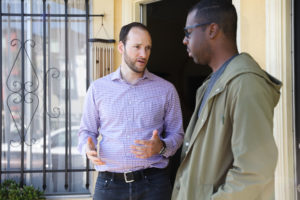

Attorney Chesa Boudin: Prison and Cash Bail Reform
Recently we have seen people who are progressives run for the office of prosecutor in cities across the country. This is an office which many people associate with police departments with whom they closely work. The new crop of reform minded prosecutors are saying that the criminal justice system is broken, that it is costly, classist, and racist. They say it is ineffective in keeping people safe and that 2/3 of the people convicted wind up back in prison in a few years.
Guest – Attorney Chesa Boudin who is currently an Assistant Public Defender in San Francisco. He is running for the office of district attorney in that city. The ideas for reform in the criminal justice system that he has put forward in his campaign are receiving wide attention and considerable support. Boudin was instrumental in getting the discriminatory practice of cash bail eliminated in San Francisco.
—-

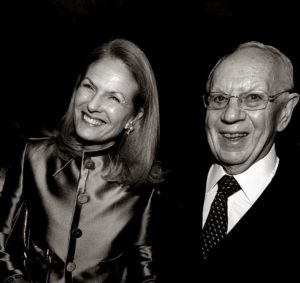
OxyContin Epidemic And the Sackler Family
In March, the maker of OxyContin and the family that owns the company, reached a $270 million settlement with the state of Oklahoma over the painkiller’s role in the nation’s opioid crisis. Purdue Pharma is based in Stamford, CT and is controlled by the Sackler Family.
The money will go toward creating a National Center for Addiction Studies and Treatment at Oklahoma State University in Tulsa. The deal comes two months before Oklahoma’s lawsuit against Purdue and other pharmaceuticals blamed for the crisis was set to go to trial.
Purdue Pharma introduced OxyContin more than two decades ago, marketing the highly addictive drug aggressively to physicians. It has made billions of dollars from the drug but faces approximately 2,000 lawsuits from state and local governments trying to hold the company responsible for deadly epidemic.
The Centers for Disease Control reports the prescription opioids like OxyContin were a factor in a record 48,000 deaths across the U.S. in 2017.
Purdue Pharma has settled other lawsuits over the years, and three executives pleaded guilty to criminal charges in 2007. But this is the first settlement to come out of the current coast-to-coast wave of litigation that focuses on the company’s more recent conduct and threatens to drive it to bankruptcy.
Guest – Liz Whyte, an award-winning reporter for the investigation news organization the Center for Public Integrity. Politics of Pain Report. She is a reporter for the Consider the Source state politics team, where her investigative work has won awards from the National Press Club, Editor & Publisher, the Association of Health Care Journalists, the New York Press Club and local chapters of the Society of Professional Journalists.
—————————-

—————————-
Afghanistan War, CIA Sponsored Terror, Civil Liberties, Crony Capitalism, Human Rights, Iraq War, Political Prisoner, Prison Industry, Torture, Truth to Power, War Resister
Podcast: Play in new window | Download


My Lai Memorial Exhibit
The aggressiveness of United States war machine has killed 500,000 people since 911, caused millions of people to be displaced, and all this at a cost of some $6 trillion.
President Trump has said that “all options are on the table” regarding sending troops to Venezuela. His National Security Adviser John Bolton said that Venezuela, Cuba and Nicaragua are part of the “troika of tyranny ” – in the US’s gun sites. After first promising to withdraw troops from Syria, Trump has reversed himself. Troops are still fighting in Afghanistan after 19 years. Iran remains the ultimate target in the Middle East. How did our country get to the state? What was done 50 years ago in the Vietnam era by millions of American citizens which help end in 1975 the American war in that country?
March 18 marks the 51st anniversary of the infamous My Lai Massacre in Vietnam. Their American troops murdered 504 Vietnamese women, old men, children and babies. It marked a turning point in the American peoples’ revulsion and consequent mobilization against the war.
Guest – former Navy Lieutenant Susan Schnall of Veterans for Peace. She became famous in 1968 when she dropped antiwar leaflets from an airplane on navy ships in San Francisco Bay.
Guest – Mac MacDevitt – is an associate member of Chicago Veterans for Peace and Committee Chair of the My Lai Memorial Project. He is an artist, storyteller and educator who came of age and was forever changed during the Vietnam War. He was radicalized by witnessing the wounded fellow protesters, beaten by US Marshals as night fell after the March on the Pentagon in 1967. In 1981 Mac did a social work internship at the VA Hospital in White River Junction, Vermont in the psych department where he experienced vets dealing with ghosts from Vietnam and earlier wars.
—-
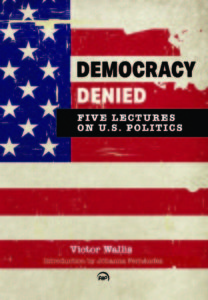
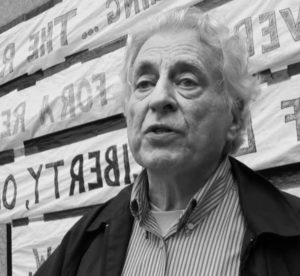
Democracy Denied: Five Lectures on U.S. Politics
The United States is unique among advanced countries in having the greatest inequality, highest poverty rate, highest portion of its population imprisoned, and highest proportion lacking healthcare.
Victor Wallis’ new book Democracy Denied offers a succinct history of several traits unique to the nation.
It came out of a lecture series in China and presents a historically grounded perspective on these traits, including chapters on “American exceptionalism,” on U.S. imperialism, the trajectory of African-descended people in the United States, efforts to develop a socialist alternative to the dominant institutions, and the current configuration of U.S. politics.
Guest – Victor Wallis is a professor in the Liberal Arts department at the Berklee College of Music in Boston. For twenty years he was the managing editor of Socialism and Democracy. He is the author of Red-Green Revolution: The Politics and Technology of Ecosocialism (2018) and of many articles on topics related to environmentalism, social justice, and radical politics. Victor’s activism dates from the 1960s and encompasses issues ranging from U.S. foreign intervention to prisoners’ rights.
———————–

———————–
CIA Sponsored Terror, Civil Liberties, Crony Capitalism, Habeas Corpus, Supreme Court, Surveillance, Truth to Power, War Resister
Podcast: Play in new window | Download
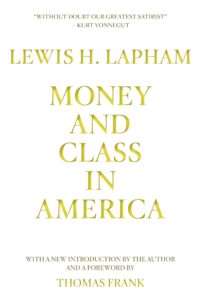
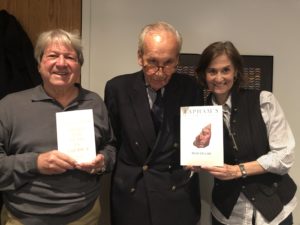
Money And Class In America – Lewis Lapham
We are especially pleased and honored to spend the hour with our guest Lewis Lapham. After graduating from Yale in 1956 he started out working as a newspaper reporter in San Francisco and then in New York, where he currently lives and works. The editor of Harper’s Magazine for 20 years, Lapham has written 14 books. Currently, he edits “Lapham’s Quarterly.”
Lapham founded the quarterly magazine in an effort to further the consideration of history, which he calls “the advice and counsel of the past.” He sees history as “a guide to understanding and acting on the issues and ideas before us today.”
Major pillars of the rule of law have been defiled since 911. The edifice still stands, the promises remain, but as a nation, we have suffered huge losses. Last spring Lapham’s Quarterly addressed the topic, “The Rule of Law.” His 1988 book “Money and Class In America” was re-published by OR Books last year with a new introduction by Lapham and a forward by Thomas Frank. We speak with him in our studio today about the contradiction between the rule of the monied rich and the rule of law.
Guest – Lewis Lapham is editor and founder of Lapham’s Quarterlysince 2007 and editor of Harper’s Magazinefrom 1975 to 2006, Lewis H. Lapham is a member of the American Society of Magazine Editors Hall of Fame. He is the author of fourteen books, among them Money and Class in America, The Wish for Kings,Waiting for the Barbarians, Theater of War, and Age of Folly. He produced a weekly podcast,The World in Time, for Bloomberg News from 2011 through 2013. His documentary filmThe American Ruling Class has become part of the curriculum in many of the nation’s schools and colleges. A member of the Council on Foreign Relations in New York, Lapham has lectured at Yale, Princeton, Dartmouth, Stanford, the University of Michigan, and the University of Minnesota.
Censorship, Civil Liberties, Criminalizing Dissent, Crony Capitalism, Human Rights, Supreme Court, Surveillance, Truth to Power, War Resister
Podcast: Play in new window | Download
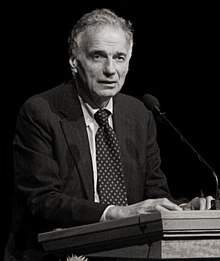
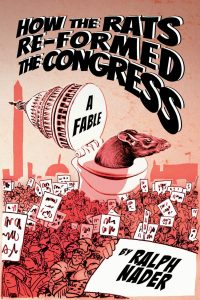
How the Rats Re-Formed Congress
A fable is a short tale that anthropomorphizes animals. The animals personify human virtues and vices, and function as an instrument of moral instruction. We mention this because Ralph Nader joins us to discuss his new book How the Rats Re-Formed Congress. It’s a Fable about an invasion of rats in Congress that triggers a peoples’ political revolt. It begins when a Congressional reporter breaks a bizarre story: “Rats have invaded the toilet bowls” of the Speaker of the House and the Minority Leader. A national news frenzy ensues.
Activists seize on the breaking story to organize for a populist agenda. Spontaneous rallies erupt. The activists see the rats upending “business as usual” routines on Capitol Hill as a symbol against lobbyists and corporate Congress. Millions flood into the nation’s capitol to take back Congress from Wall Street. Congressional offices are deluged with citizen rallies and meetings. Members are challenged in primaries. Incumbents join the movement.
Wall Street and its lobbyists warn of economic collapse and mass layoffs if the people’s agenda passes Congress. Corporate front groups are formed to disrupt peaceful crowds. Despite that, corporate lobbyists and think tanks can’t overcome the organized will of the determined citizenry. Tortmuseum.org
Listen to our past interview with Ralph Nader about the Tort Museum.
Guest – Ralph Nader, one of the nation’s most effective and well-known social critics. He has raised public awareness and increased government and corporate accountability. As a young lawyer in 1965 he made headlines with his book Unsafe at Any Speed, leading to congressional hearings and passage of a series of life-saving auto safety laws in 1966. His example has inspired a generation of consumer advocates, citizen activists and public interest attorneys. Full biography.
————————-

————————-




















